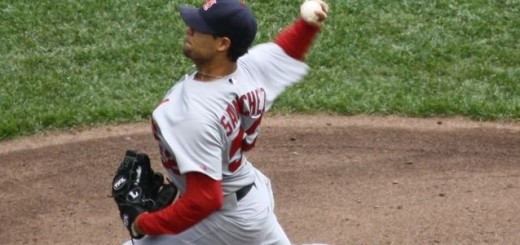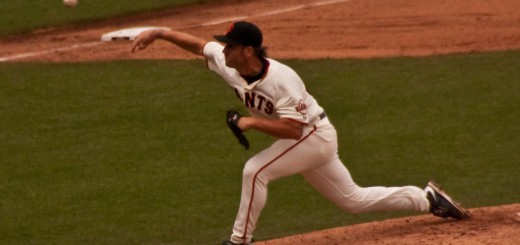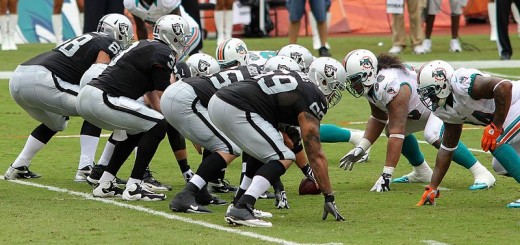A Fairy Tale Ending
Once upon a time there was a team. It was a team that wanted to be like the little engine that could, except for this team, this engine was more likely to be a “couldn’t.” It shouldn’t have been able to think that it had a chance to reach the level of could. This team, to be truthfully honest, wasn’t considered very likely to do much of anything.
It was a team that at that time had represented a nation that had once been great, but had fallen upon hard times. The year was 1980. The nation was the United States, who, at that time, was considerably different as a nation than it is now. The country had just seen its PRESIDENT impeached and removed from office in 1974. Economically, the nation had turned into a real mess. It had gone through the gasoline crisis of the late 1970’s. It had horrible inflation. It had double digit interest rates. No one seemed to have much confidence in anything that was American anymore.
The presidencies of Gerald Ford and Jimmy Carter had lost the respect of the world stage. Hostages had been taken from our embassy by a second rate country like Iran, and the U.S. seemed powerless to do anything about it. The leaders of the U.S. gave out a message to its citizenry that the country should think more about lessening its expectations for the future, and that people should, in a sense, think that being a second or third place type of country wouldn’t be so bad.
The event was the 1980 Winter Olympics. The team was the United States Men’s Hockey Team. The way the country was going, the expectations for that team were not very high. They were just a bunch of college kids put together to form a team. They were just a little engine that was hoping to have a good enough showing to make their country proud.
The big, bad wolf of this story was the Soviet Union. Not just the country of Russia, though, as at this time, the Soviet Union also consisted of the other satellite nation states like The Ukraine, Belarus, Latvia, Estonia, Lithuania, Georgia, Kazakhstan, etc., they were all of the smaller components that comprised the Union of Soviet Socialist Republics, or U.S.S.R. In this, the 1980 Winter Games, the Soviet hockey team was the four-time defending gold medal champion of the 1964, 1968, 1972 and 1976 Olympics. They dominated Olympic ice hockey like the United States professionals (a la the “Dream Team”) still dominate Men’s Olympic Basketball.
The Russian team was this good in ice hockey because the rules of Olympic hockey allowed their national team to be classified as amateurs (even though they played in the equivalent of professional leagues in the Soviet Union), while the rest of the countries (mainly Canada and the United States) could NOT utilize their (NHL players) “professionals,” and had to instead field their teams with purely “amateur” college players.
Besides the heavily favored Russians, the other countries that would have been favored over the U.S. Men’s Hockey team in 1980 would have included the Swedes, the Finns, the Czechs, and even the Canadians (a team also comprised of true amateurs). For the United States, involved in the most frigid of times in the Cold War with the Russians, the public saw the natural possibilities of a game of US vs. THEM.
The only problem of the public’s thinking that the U.S. could make a game against the U.S.S.R. matter was that the Russian team was simply a much better team than the U.S. In a pre-Olympic tuneup game, the Soviet team thrashed the United States team 10 to 3.
For anything to matter, the U.S. team would have to qualify for the medal round as one of the final four teams after the earlier round robin tournament games had been played. The U.S. had one major thing going in their favor, though. The games were being held on U.S. soil, in Lake Placid, New York.
The U.S. team played to a surprising tie against a favored Swedish team by pulling their goalie and scoring a game tying goal with less than a minute to play. They upset another favored team, the Czechs, in round robin play, and people started thinking that this team might have something special in them. News people started calling them “America’s Team” and started seeing the possibility of a Cold War match up of the U.S. against the Russians. And when the U.S. team won the rest of their round robin games to earn themselves a spot in the medal round, there waiting for them in that first game of the medal round was the big bad wolf, the Russian national team.
35 years ago today, the U.S. played the Russian team in the quarterfinal game at that 1980 Olympics. It was a game at a time that was truly at the height of the Cold War tensions between the two countries. (If you could imagine that AFTER this Olympics, the U.S. would boycott the 1980 Summer Olympics in Moscow and the Soviets would boycott the 1984 Summer Olympics in Los Angeles, you could see the urgency) The Russians SHOULD have won this contest. If they played ten times, the Russians probably would have won nine times.
But, that’s not what happens in fairy tales. The U.S., in a stirring, emotional game in Lake Placid, pulled ahead late in the game against Russia 4 to 3. Their goalie, Jim Craig, played over his head and made a bunch of big saves. The crowd of American sports fans started chanting a famous chant that continues to this day, “U.S.A.! U.S.A.! U.S.A.!” The home ice advantage really did help the U.S. stave off the furious Soviet challenge at the end of that game.
35 years ago today, the United States BEAT the four time, defending gold medalist ice hockey champions, the Soviet Union, by a score of 4 to 3 in a game that was considered by Sports Illustrated as the greatest sports moment of the 20th Century. 35 years ago today, the United States felt really good about themselves, and it was the beginning of the recovery of the psyche of the United States. You can look back in history and see it all turn around right after that Olympic moment.
The U.S. had to win their final medal game against Finland to win the gold medal, which they did, but the everlasting moment that everyone remembers is that 4 to 3 game by a bunch of college players against the best team in the world. The Cold War implications should have been labeled as overrated, actually, as it was STILL just a win in an Olympic event.
But the final victory in the game went much further in terms of the confidence gained by the citizenry of the United States. It became okay again for people to want their country to be great again. EVERYONE won that game.
The country was going to hell and the U.S. national hockey team was facing insurmountable odds against a far superior team. The American people, by identifying so strongly with its team, went along for the emotional ride as they and the team went up against an obstacle that seemed like it could never be overcome. AND THEY TRIUMPHED!
35 years ago today, that U.S. team of college kids won a game against incredible odds and inspired a nation. 35 years later, a person can still get goose bumps watching highlights of an event that will probably always be the greatest U.S. sporting event of all time. 35 years ago today, The Little Engine That Could went toe to toe against the Big Bad Wolf and kicked its ass, and transcended everything that had ever preceded it.
In this cold world of reality we live in, there is something REALLY remarkable about a fairy tale ending that comes true.




